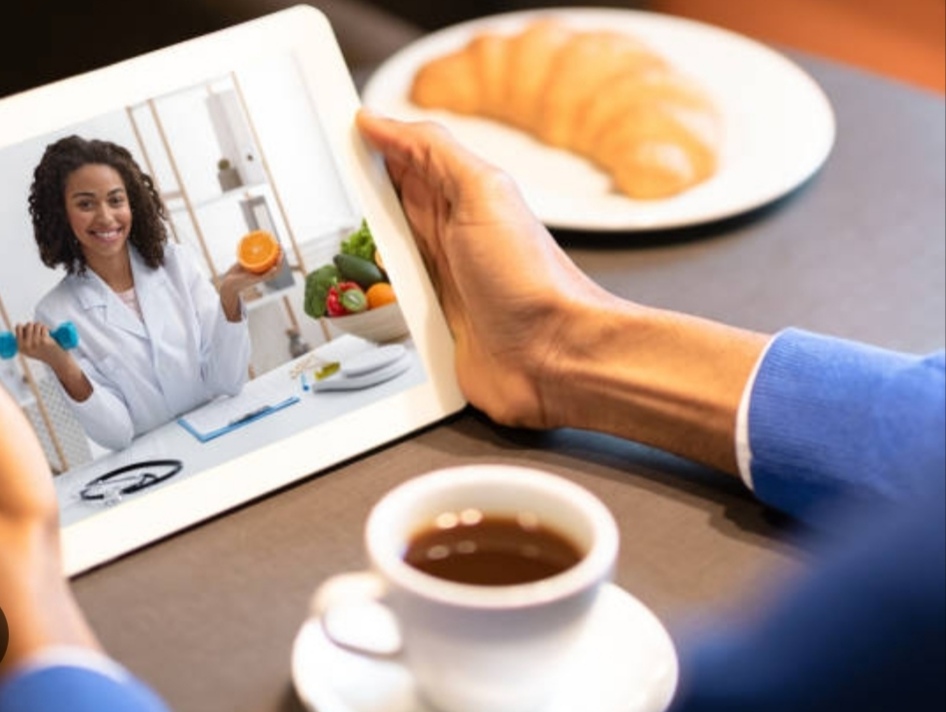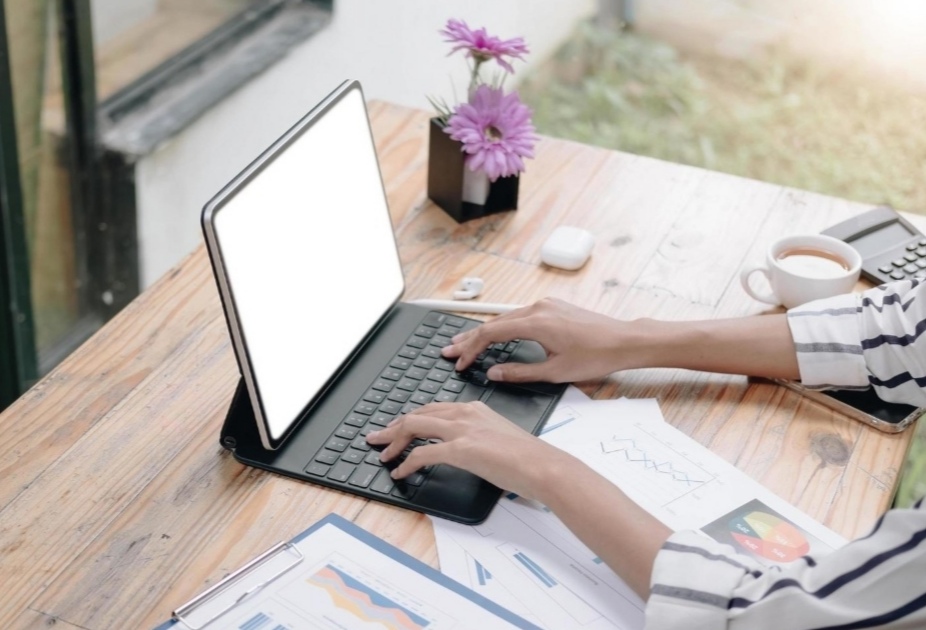Laptop or Tablet?
In today’s digital landscape, the battle between laptops and tablets continues to capture attention as these devices evolve with cutting-edge technology.
For years, laptops have been the go-to choice for productivity and heavy-duty tasks, while tablets are loved for their portability and ease of use.
But in 2025, the lines between these two device categories have blurred, creating an even more challenging decision for consumers.

Choosing the right device depends on understanding your unique needs, lifestyle, and priorities.
For professionals, students, gamers, and casual users, making the wrong decision could lead to wasted money and unmet expectations.
Whether you’re searching for laptops for work or tablets for entertainment, this guide will help you navigate through the sea of options.
We’ll compare these devices head-to-head on performance, design, battery life, and more.
By the end of this article, you’ll know exactly whether a laptop, tablet, or even a hybrid device is the perfect match for your needs.
Let’s dive into the ultimate guide to Laptop vs. Tablet and help you make an informed decision that suits your requirements.
Understanding Laptops and Tablets
When it comes to the debate of laptop vs tablet, understanding the core purpose and capabilities of each device is essential.
Laptops and tablets serve distinct roles, but technological advancements have blurred their boundaries.
Let’s dive deeper to explore what makes these devices unique and how they cater to different needs.

What Is a Laptop?
A laptop is a portable computer designed for versatility, productivity, and performance.
Unlike desktops, laptops combine essential components—processor, storage, and display—into a compact, foldable form factor.
Laptops are equipped with physical keyboards, making them ideal for tasks requiring extensive typing, such as writing reports or coding applications.
Primary Functions of a Laptop:
- Productivity Powerhouse: Laptops are built to handle resource-intensive software like video editing tools, design programs, and professional suites such as Microsoft Office.
- Multitasking Excellence: With robust processors and ample RAM, laptops excel at running multiple applications simultaneously without lag.
- Connectivity Hub: Laptops typically offer a wide range of ports (USB, HDMI, Ethernet) for connecting peripherals, external monitors, or additional storage.
Typical Use Cases for Laptops:
- Work and Professional Use: Ideal for professionals requiring extensive software support and multitasking capabilities.
- Education: Perfect for students who need to take notes, create presentations, and access online resources.
- Entertainment: Suitable for streaming, gaming, or watching movies on a larger screen.
- Travel-Friendly Computing: Lightweight models like ultrabooks make laptops convenient for working on the go.
The laptop vs tablet choice often hinges on whether users prioritize power and functionality over portability.
What Is a Tablet?
A tablet is a lightweight, touchscreen device designed primarily for ease of use, portability, and media consumption.
Tablets lack the traditional clamshell design of laptops but make up for it with their sleek profiles and intuitive interfaces.
Some tablets, when paired with accessories like keyboards or styluses, can mimic laptop functionality, appealing to users who prefer flexibility.
Primary Functions of a Tablet:
- Entertainment Hub: Tablets are perfect for streaming videos, reading eBooks, or browsing social media.
- Creative Companion: Artists and designers benefit from stylus support for drawing, sketching, and note-taking.
- On-the-Go Utility: Their compact size makes tablets ideal for travelers or individuals who prioritize portability.
Typical Use Cases for Tablets:
- Media Consumption: Great for watching shows, playing casual games, and reading.
- Note-Taking and Sketching: Ideal for students and creatives, especially when paired with a stylus.
- Video Calls and Quick Tasks: Excellent for online meetings, email responses, and lightweight productivity.
- Child-Friendly Device: Tablets are often used as educational tools or entertainment devices for kids.
When deciding on laptop vs tablet, users often consider tablets for their simplicity and ease of use, particularly for casual or light tasks.
By understanding the definitions, functionalities, and typical uses of laptops and tablets, you’ll gain clarity on which device aligns best with your lifestyle.
Next, we’ll delve deeper into their key differences to help you make a well-informed decision.
Ready to find your perfect device? Click here to explore the best laptops and tablets available today!
Key Differences Between Laptops and Tablets
The debate of laptop vs tablet often boils down to understanding their key differences in terms of performance, portability, and battery life.
While laptops offer robust performance, tablets shine with their portability and ease of use.
Let’s explore these differences in detail to help you make the most informed choice.

Performance and Processing Power
When it comes to performance, laptops are clear winners in terms of processing power and multitasking capabilities.
CPU and GPU Capabilities:
- Laptops are equipped with powerful CPUs and GPUs, making them suitable for resource-intensive tasks like video editing, 3D modeling, and gaming.
- Many laptops now feature high-performance processors like Intel Core i7/i9 or AMD Ryzen 7/9, which outperform tablet processors by a wide margin.
- Tablets, on the other hand, rely on mobile processors such as Apple’s A-series chips or Qualcomm Snapdragon, which are optimized for efficiency rather than raw power.
Multitasking and Heavy Applications:
- Laptops excel at running multiple applications simultaneously without lag, thanks to higher RAM capacity and efficient cooling systems.
- Tablets can handle multitasking to some extent but are not ideal for demanding software like Adobe Premiere Pro or CAD applications.
- If your primary focus is productivity or running high-end software, a laptop is the better choice in the laptop vs tablet comparison.
Portability and Design
Weight and Size Considerations:
- Tablets are significantly lighter and more compact than laptops, making them perfect for on-the-go use.
- The average tablet weighs between 1-2 pounds, whereas laptops can range from 3-7 pounds, depending on their size and type (e.g., ultrabooks vs gaming laptops).
- Slim and sleek, tablets can easily fit into a backpack or even a purse, making them highly portable.
Ease of Use in Various Environments:
- Tablets shine in environments where portability is key—think commutes, coffee shops, or casual use at home.
- Laptops, while portable, are bulkier and require a stable surface for comfortable use.
- Detachable laptops or 2-in-1 hybrids offer a middle ground, providing the portability of a tablet with the performance of a laptop.
If you value mobility and convenience, a tablet might suit your lifestyle better, but for those prioritizing versatility, a lightweight ultrabook could be a better fit.
Battery Life
Battery life is a crucial factor in deciding between a laptop vs tablet, especially for users who spend long hours away from charging outlets.
Average Battery Longevity:
- Tablets generally offer superior battery life compared to laptops.
- Premium tablets like the iPad Pro or Samsung Galaxy Tab can last up to 10-14 hours on a single charge.
- Laptops, especially high-performance models, average around 5-8 hours of battery life, with ultrabooks offering slightly better longevity.
Factors Influencing Battery Performance:
- Tablets consume less power due to their mobile-optimized processors and smaller displays.
- Laptops, with larger screens and more powerful hardware, drain batteries faster, especially when running demanding applications.
- Battery life on both devices can be extended by lowering brightness, closing background apps, and enabling power-saving modes.
For users prioritizing battery efficiency and extended usage, tablets often have the edge.
However, laptops with optimized power settings can still meet most day-to-day needs.
Understanding these key differences will help you determine whether a laptop or tablet is better suited for your specific requirements.
For performance-driven tasks, laptops are the clear choice, while tablets are unbeatable for portability and long-lasting battery life.
Still undecided? Check out our best laptop picks for performance and top tablets for portability to find your ideal device!
Input Methods and User Interface
The way you interact with a laptop vs tablet plays a crucial role in determining which device aligns with your preferences and workflow.
Keyboard and Mouse vs. Touchscreen:
- Laptops are primarily designed for productivity and come equipped with physical keyboards and touchpads.
- The tactile feedback of a keyboard and the precision of a mouse make laptops ideal for tasks like typing documents, coding, or gaming.
- Tablets, on the other hand, rely on touchscreens, offering a more intuitive and direct interaction experience.
- While tablets have on-screen keyboards, they are less comfortable for extended typing sessions compared to a laptop’s physical keyboard.
- Many high-end tablets, like the iPad Pro or Microsoft Surface, support detachable keyboards, which bridge the gap between the two devices.
Availability of Stylus Support:
- Tablets often support stylus pens, such as the Apple Pencil or Samsung S Pen, which are invaluable for creatives and note-takers.
- Styluses enable precise drawing, handwriting recognition, and digital art creation, making tablets a favorite among designers and illustrators.
- Laptops typically lack native stylus support, though some 2-in-1 models like the Surface Laptop Studio provide this feature.
- If you’re a student or artist looking for seamless annotation and design capabilities, a tablet might be your best bet.
Software and Operating Systems
The software ecosystem is another critical factor when comparing a laptop vs tablet, as it determines the range of tasks each device can handle.
Types of Applications Supported:
- Laptops run desktop-class operating systems like Windows, macOS, or Linux, supporting a vast array of professional software, including Microsoft Office, Adobe Creative Suite, and AutoCAD.
- Tablets operate on mobile-focused systems like iPadOS, Android, or Windows Lite, which are optimized for efficiency but may lack advanced desktop functionalities.
- While tablets offer apps for productivity and entertainment, they often have stripped-down versions of professional software, limiting their capabilities for certain tasks.
Compatibility with Professional Software:
- If you need to run industry-standard software for video editing, software development, or data analysis, a laptop is the clear choice.
- Tablets excel in casual use cases like browsing, streaming, or light editing but may fall short for professionals requiring advanced tools.
- However, cloud-based applications and remote desktop features are narrowing the gap, allowing tablets to access desktop-level software when needed.
Storage Capacity
Internal Storage Options:
- Laptops typically offer higher storage capacities, ranging from 256GB SSDs to 2TB or more, catering to users with extensive storage needs.
- Tablets usually come with limited internal storage, with most models offering 64GB to 512GB.
- If you frequently deal with large files, like high-resolution videos or datasets, a laptop provides the space required to manage your workflow efficiently.
Expandability and External Storage Solutions:
- Laptops often include options for expandable storage, such as additional SSD slots or external hard drive compatibility.
- Tablets are more restrictive in this regard, with many relying on cloud storage or limited microSD card support for expansion.
- For users with minimal storage needs, tablets suffice, but professionals requiring ample space will find laptops more accommodating.
Connectivity and Ports
Availability of USB, HDMI, and Other Ports:
- Laptops typically feature multiple ports, including USB-A, USB-C, HDMI, and Ethernet, making them highly versatile for connecting peripherals and external displays.
- Tablets, designed for minimalism, often have fewer ports—usually just a USB-C or proprietary charging port—necessitating adapters for additional connectivity.
- If you frequently use external monitors, printers, or other devices, laptops provide a more comprehensive connectivity solution.
Wireless Connectivity Options:
- Both laptops and tablets support Wi-Fi and Bluetooth, but tablets often include cellular connectivity options, enabling internet access on the go.
- Laptops rarely offer cellular support, though mobile hotspots can compensate for this limitation.
- Tablets are a great choice for users who need constant connectivity, such as travelers or remote workers, while laptops excel in more stationary setups.
When comparing input methods, operating systems, storage, and connectivity, the laptop vs tablet decision ultimately hinges on your specific needs.
Laptops excel in professional settings requiring extensive storage and versatile software, while tablets are ideal for creative and on-the-go users.
Ready to make your decision? Explore our top-rated laptops and best tablets for creative professionals to find your perfect match!
Pros and Cons of Laptops
When deciding between a laptop vs tablet, understanding the advantages and disadvantages of best laptops is crucial for making an informed choice.
Laptops offer unmatched performance and versatility, but they also come with trade-offs.
Let’s delve deeper into the pros and cons.

Advantages of Laptops
Laptops remain a go-to device for productivity and professional work due to their robust features and capabilities.
1. Superior Performance for Complex Tasks:
- Laptops are equipped with powerful processors (CPUs) and dedicated graphics cards (GPUs) that handle resource-intensive tasks effortlessly.
- They are ideal for activities like video editing, software development, gaming, and running advanced simulation software.
- Unlike tablets, laptops can multitask seamlessly, allowing users to run multiple applications simultaneously without compromising performance.
2. Extensive Software Compatibility:
- Laptops support a wide range of software, from desktop applications to professional-grade tools.
- Applications like Adobe Premiere Pro, AutoCAD, and Microsoft Excel run optimally on laptops, offering advanced features not available on tablet counterparts.
- This makes laptops a better option for professionals, students, and gamers who rely on specialized software.
3. Physical Keyboard Enhances Productivity:
- The inclusion of a physical keyboard and trackpad enhances the user experience for typing-intensive tasks.
- Writing long documents, coding, or creating presentations is significantly easier and faster on a laptop.
- The ergonomic design of laptop keyboards ensures better comfort during prolonged use compared to touchscreen or detachable keyboards on tablets.
4. Larger Display for Multitasking:
- Laptops come with larger screen sizes, often ranging from 13 inches to 17 inches, enabling users to view more content at once.
- A bigger screen is particularly advantageous for video editing, spreadsheet management, and graphic design.
- Additionally, laptops support higher resolutions like 4K, making them suitable for professionals who require precise visuals.
5. Greater Storage Options:
- Most laptops offer extensive internal storage, starting from 256GB SSDs and extending up to 2TB or more.
- They also support expandable storage options through external hard drives or SSDs, making them suitable for storing large files like videos, projects, or datasets.
6. Better Customization and Upgradeability:
- Many laptops allow users to upgrade RAM, storage, or even graphics cards, providing flexibility and extending the device’s lifespan.
- This level of customization is rarely possible with tablets.
Disadvantages of Laptops
While laptops shine in many areas, they are not without limitations.
1. Generally Heavier and Less Portable:
- Laptops are bulkier and heavier than tablets, making them less convenient to carry around.
- Even the most lightweight laptops, like ultrabooks, cannot compete with the compact design and portability of a tablet.
- For users who prioritize portability and on-the-go use, this is a notable drawback.
2. Shorter Battery Life Compared to Tablets:
- Laptops typically offer a battery life of 4-8 hours under regular usage, which is shorter than the 10-12 hours provided by most modern tablets.
- High-performance laptops, especially gaming laptops, drain batteries faster, making them reliant on power outlets.
- Tablets, designed for energy efficiency, outlast laptops during travel or long work sessions away from a power source.
3. Increased Heat Generation:
- Due to powerful hardware components, laptops generate more heat during operation, often requiring fans or cooling pads.
- Tablets, on the other hand, are fanless and run cooler, ensuring a quieter experience.
4. Higher Cost for Advanced Models:
- High-end laptops with cutting-edge features, like 4K displays and powerful GPUs, can be significantly more expensive than tablets.
- For casual users, investing in a premium laptop may not provide the best value for money.
5. Limited Touchscreen Functionality:
- While some laptops include touchscreen capabilities, the experience is not as seamless or natural as using a tablet.
- Tasks like drawing, sketching, or annotating are more intuitive on a tablet due to its optimized touchscreen interface.
Laptops are a powerhouse for productivity and professional tasks, offering superior performance, extensive software support, and advanced multitasking capabilities.
However, their heavier build and shorter battery life might be drawbacks for users seeking portability and longer usage on a single charge.
Explore the best laptops for performance-driven professionals or compare them with our top tablets for on-the-go productivity to find the perfect fit for your needs!
Pros and Cons of Tablets
When weighing the choice of laptop vs tablet, it’s essential to consider the strengths and limitations of tablets.
Tablets excel in portability and convenience, but they may not meet the demands of users requiring robust performance.
Here’s an in-depth look at the advantages and disadvantages of tablets.

Advantages of Tablets
Tablets are a popular choice for those who value mobility, simplicity, and ease of use. Let’s explore why they stand out in the laptop vs tablet debate.
1. Highly Portable and Lightweight:
- Tablets are designed with mobility in mind, offering a slim, lightweight profile that’s easy to carry.
- Most tablets weigh less than a pound, making them ideal for users who travel frequently or need a device for on-the-go use.
- Their compact size allows them to fit comfortably into backpacks, handbags, or even large pockets.
- Unlike laptops, tablets can be used comfortably while standing, sitting, or reclining, thanks to their flexible form factor.
2. Longer Battery Life:
- Tablets typically offer exceptional battery life, often lasting 10 to 15 hours on a single charge, depending on usage.
- Energy-efficient hardware ensures that tablets consume less power compared to laptops.
- This makes tablets an excellent choice for long commutes, flights, or extended outdoor activities without access to a power source.
3. Ideal for Media Consumption and Casual Use:
- Tablets provide a fantastic user experience for watching videos, reading eBooks, browsing the web, or streaming music.
- Their high-resolution screens and vibrant displays make them perfect for enjoying movies, TV shows, or gaming.
- Applications like Netflix, Kindle, and Spotify are optimized for tablet interfaces, enhancing the media consumption experience.
- Additionally, tablets are great for casual tasks such as emailing, social media browsing, or video calling.
4. User-Friendly Touchscreen Interface:
- The touchscreen functionality of tablets offers an intuitive and engaging experience for users of all ages.
- Tasks like drawing, photo editing, or taking handwritten notes are seamless with stylus support, making tablets popular among artists and students.
- Unlike laptops, tablets don’t require a separate mouse or keyboard, simplifying their use.
5. Affordable Entry-Level Options:
- Entry-level tablets are often more budget-friendly than laptops, providing an economical solution for basic needs.
- This affordability makes tablets an excellent choice for students, families, or users who don’t need advanced capabilities.
6. Versatility with Detachable Accessories:
- Many tablets now support detachable keyboards and styluses, enhancing their functionality for light productivity tasks.
- These accessories bridge the gap between tablets and laptops, providing a hybrid experience without compromising portability.
Disadvantages of Tablets
Despite their many advantages, tablets come with limitations that may not meet the needs of every user.
1. Limited Processing Power for Demanding Tasks:
- Tablets generally have less powerful processors and lower RAM than laptops, making them unsuitable for resource-intensive applications.
- Tasks like video editing, 3D modeling, or running professional software are challenging on tablets due to hardware constraints.
- Even high-end tablets with improved specs can’t match the performance of a mid-range laptop for heavy multitasking.
2. Potential Lack of Compatibility with Certain Professional Software:
- While tablets support a wide range of apps, they may lack compatibility with specific professional-grade software like AutoCAD or Adobe Premiere Pro.
- Many industry-standard tools are optimized for desktop or laptop environments, limiting a tablet’s use in certain professional settings.
- Cloud-based solutions or remote access can sometimes fill this gap, but these alternatives are not always practical or reliable.
3. Smaller Screen Size and Limited Multitasking:
- Tablets often have smaller screens, typically ranging from 7 inches to 13 inches, which can be restrictive for multitasking or working on detailed projects.
- While some tablets offer split-screen functionality, it doesn’t provide the same level of productivity as a laptop’s larger display and multiple window support.
4. Limited Storage Capacity:
- Tablets usually come with limited internal storage, often starting at 32GB or 64GB, which can fill up quickly with apps, photos, and media files.
- Though some tablets support expandable storage through microSD cards, the overall capacity is still less than what most laptops offer.
5. Reduced Ergonomics for Long-Term Use:
- Prolonged typing or working on a tablet can be less comfortable compared to a laptop with a physical keyboard.
- External keyboards can address this, but they add to the overall cost and reduce portability.
6. Dependency on Internet Connectivity:
- Many tablet functionalities, including app performance and cloud-based storage, depend on consistent internet access.
- This reliance can be a drawback in areas with poor or no connectivity.
Tablets excel in portability, media consumption, and casual use, making them a fantastic choice for users who prioritize convenience.
However, their limitations in processing power, software compatibility, and multitasking make them less suitable for professional or demanding tasks.
Not sure whether to choose a laptop or tablet? Discover our expert guide to laptops and top-rated tablets to help you make the perfect decision today!
Hybrid Solutions: 2-in-1 Devices
The debate of laptop vs tablet often leads to a consideration of 2-in-1 devices, a hybrid solution that offers the best of both worlds.
These versatile gadgets combine the power and functionality of laptops with the portability and convenience of tablets, making them a popular choice for many users.

What Are 2-in-1 Devices?
2-in-1 devices, also known as convertible or detachable laptops, are hybrids that seamlessly blend the functionalities of laptops and tablets. Here’s how they work and what sets them apart:
1. Convertible Hybrids:
- These devices feature a 360-degree hinge that allows the screen to fold back completely, transforming the laptop into a tablet.
- Popular models like the Lenovo Yoga series and HP Spectre x360 excel in this category.
- They offer multiple modes, including laptop, tablet, tent, and stand, catering to various use cases.
2. Detachable Hybrids:
- Detachable devices feature screens that can be separated entirely from the keyboard, functioning as standalone tablets.
- The Microsoft Surface Pro and Dell XPS 13 2-in-1 are excellent examples of this category.
- Detachable are perfect for users who prioritize portability and flexibility without sacrificing productivity.
3. Ideal Use Cases:
- Professionals who need a device for both work and casual use can rely on 2-in-1s for presentations, note-taking, and light design tasks.
- Students benefit from their portability for lectures and versatility for entertainment during downtime.
These hybrids aim to address the gap between traditional laptops and tablets, offering a solution that adapts to diverse user needs.
Benefits and Drawbacks of 2-in-1 Devices
While 2-in-1 devices bring together the strengths of laptops and tablets, they also come with certain trade-offs. Let’s delve deeper into their advantages and limitations.
Benefits of 2-in-1 Devices
1. Versatility in Functionality:
- 2-in-1 devices are incredibly versatile, allowing users to switch between laptop and tablet modes effortlessly.
- Their ability to cater to both productivity and entertainment needs makes them ideal for a wide range of tasks, from editing documents to watching movies.
- Multi-mode functionality (e.g., tent mode for presentations) further enhances their adaptability in different scenarios.
2. Space-Saving Design:
- These devices eliminate the need to own both a laptop and a tablet, saving space and reducing clutter.
- Perfect for those with limited desk space or frequent travelers.
3. Lightweight and Portable:
- Detachable hybrids are particularly lightweight, making them easy to carry for users constantly on the move.
- Convertible hybrids also maintain a slim profile, striking a balance between performance and portability.
4. Stylus Support for Creative Tasks:
- Many 2-in-1s come with stylus support, enabling precise input for tasks like drawing, designing, or note-taking.
- This feature is particularly beneficial for artists, architects, and students.
5. Touchscreen Functionality:
- The touchscreen adds an interactive dimension to computing, allowing intuitive navigation and operation.
- Apps optimized for touchscreens enhance the user experience, especially in tablet mode.
Drawbacks of 2-in-1 Devices
1. Compromised Performance:
- While high-end 2-in-1 devices offer excellent specs, many mid-range models may fall short of the performance provided by traditional laptops.
- Tasks requiring heavy processing power, such as video editing or gaming, may strain their capabilities.
2. Higher Price Point:
- Premium 2-in-1 devices can be more expensive than standalone laptops or tablets with comparable features.
- The additional cost for features like a detachable screen or 360-degree hinge might not appeal to budget-conscious buyers.
3. Durability Concerns:
- The hinges in convertible hybrids and the magnetic connectors in detachable models are potential weak points, raising concerns about long-term durability.
- Frequent switching between modes can also lead to wear and tear.
4. Keyboard Limitations:
- Detachable hybrids often have smaller, less comfortable keyboards, which can hinder productivity during extended typing sessions.
- While external keyboards can improve this, they reduce the portability advantage of 2-in-1s.
5. Limited Battery Life in Tablet Mode:
- When used as standalone tablets, battery life can diminish quickly due to the power demands of larger screens and more powerful hardware.
- Users may need to carry chargers or external batteries, negating the portability benefit.
Who Should Choose a 2-in-1 Device?
If you’re torn between a laptop vs tablet, consider a 2-in-1 device if:
- You need a device that combines the functionality of both, reducing the need to carry multiple gadgets.
- Portability, versatility, and a balance between work and casual use are your top priorities.
- You’re a student, creative professional, or someone who values touch and stylus capabilities.
For those leaning towards maximum performance or dedicated tools for demanding tasks, a traditional laptop might still be the better option.
2-in-1 devices offer a compelling hybrid solution for users who want the power of a laptop and the portability of a tablet.
Their versatility, space-saving design, and adaptability make them an attractive choice for many.
Ready to explore the best 2-in-1 devices?
Check out our top recommendations for 2-in-1 laptops and best detachable hybrids to find your perfect match today!
Frequently Asked Questions (FAQs)
When deciding between a laptop vs tablet, many users encounter similar questions about functionality, cost, and usability.
Below, we address some of the most common queries to help you make an informed decision.

1. What Are the Main Differences Between a Laptop and a Tablet?
Laptops and tablets differ primarily in design, functionality, and intended use.
- Laptops are designed for productivity, featuring keyboards, larger screens, and more powerful hardware capable of handling multitasking and resource-intensive tasks.
- Tablets are compact, lightweight devices with touchscreens, making them ideal for casual use like browsing, streaming, and light gaming.
In essence, laptops are better suited for work and multitasking, while tablets excel in portability and convenience.
2. Can a Tablet Replace a Laptop for Work?
While tablets have become more powerful with the introduction of models like the iPad Pro and Surface Pro, they are not a one-size-fits-all solution for work.
- Tablets can handle light tasks such as emailing, note-taking, and video conferencing.
- However, for coding, video editing, or running specialized software, a laptop is a more reliable choice.
If portability is your priority, a 2-in-1 device might be the perfect balance between a laptop and tablet.
3. Are Laptops More Expensive Than Tablets?
In general, laptops tend to be more expensive than tablets, but this isn’t always the case.
- Entry-level tablets are often more affordable than budget laptops, making them ideal for casual users.
- High-end tablets, when paired with accessories like keyboards and styluses, can cost as much as or more than mid-range laptops.
When comparing a laptop vs tablet, it’s important to factor in both the upfront cost and the potential expense of accessories.
4. Which Is Better for Students: Laptop or Tablet?
The answer depends on the student’s field of study and daily requirements.
- For tasks like research, essay writing, and coding, a laptop is more efficient due to its keyboard and processing power.
- For note-taking or sketching, a tablet with a stylus may be more effective.
Consider investing in a device that aligns with the tools or software required for the student’s coursework.
5. How Long Do Laptops and Tablets Typically Last?
Device longevity varies based on the brand, usage, and maintenance.
- Laptops often last longer (5-7 years) due to their ability to upgrade hardware like RAM or storage.
- Tablets, while durable, typically have a shorter lifespan (3-5 years) due to limited upgrade options.
If you’re looking for a future-proof option, a laptop generally offers more flexibility and longevity.
H3: 6. Is a Hybrid 2-in-1 Device a Good Compromise?
Yes, a hybrid device can be an excellent choice for those torn between a laptop vs tablet.
- Convertible devices like the Surface Pro offer the versatility of a tablet with the functionality of a laptop.
- These devices are great for multitaskers, students, and professionals who need a lightweight, portable device without sacrificing performance.
However, hybrid devices may have trade-offs in terms of battery life or performance compared to dedicated laptops or tablets.
7. Are Tablets Better for Travel Compared to Laptops?
For travelers, tablets are often more convenient due to their compact size and lighter weight.
- Tablets also tend to have longer battery life, making them ideal for long trips.
- If your travel involves work, a lightweight laptop or a 2-in-1 hybrid may offer a better balance between portability and productivity.
8. Which Is Better for Gaming: Laptop or Tablet?
For serious gaming, a laptop is the superior choice.
- Gaming laptops are built to handle demanding graphics and fast processing speeds, making them ideal for AAA titles.
- Tablets are suitable for casual gaming but may struggle with resource-intensive games.
9. How Do I Decide Between a Laptop and a Tablet?
To choose between a laptop vs tablet, consider the following:
- Purpose: Define your primary use cases (work, study, entertainment).
- Budget: Decide how much you’re willing to spend, including accessories.
- Portability: Prioritize portability if you’re frequently on the go.
- Longevity: Consider whether you need a future-proof device.
By aligning these factors with your lifestyle and needs, you can make the best choice.
Whether you choose a laptop vs tablet, the decision boils down to your personal needs and priorities.
For those seeking portability and casual use, tablets are an excellent option.
For users requiring power and versatility, laptops remain unbeatable.
For a versatile hybrid solution, consider investing in a 2-in-1 device that blends the strengths of both.
Need help finding the right device? Check out our top-rated laptops and best tablets for all budgets to make the perfect choice today!
Conclusion
Choosing between a laptop vs tablet can feel overwhelming, but the decision becomes much clearer when you consider your unique needs and preferences.

Recap of Key Points:
- Laptops are ideal for users who prioritize performance, multitasking, and durability, making them suitable for professionals and students.
- Tablets shine when portability, touch-based interaction, and casual use are the primary goals.
- Hybrid devices offer a compelling middle ground for those looking for versatility without compromising too much on either side.
Before making a purchase, take the time to evaluate how you plan to use the device.
- Think about whether you need a device for work, education, or entertainment.
- Reflect on your budget, future-proofing requirements, and whether portability or power takes precedence.
Making an informed decision will ensure your investment serves you well in the long term.
If you’re still undecided between a laptop vs tablet, explore our in-depth product reviews and expert recommendations to find the perfect match for your lifestyle.
Final Thoughts:
Technology is not one-size-fits-all.
A well-chosen device can simplify tasks, enhance productivity, and provide entertainment.
Whether you opt for a laptop, a tablet, or a hybrid, selecting the right tool tailored to your needs is crucial.
Ready to take the next step? Browse our top-rated laptops and best tablets for every budget and purpose. Choose wisely and elevate your tech experience today!
You might also like :

